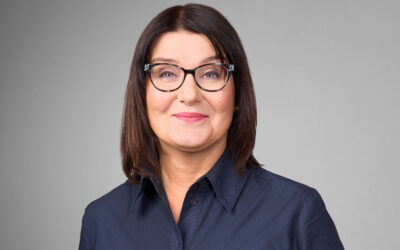News
Terhi Reunama Appointed as Head of Clinical Trial Operations
We are pleased to announce the appointment of Terhi Reunama as our new Head of Clinical Trial Operations. Terhi brings nearly 30 years of clinical research experience from both the pharmaceutical industry and CRO organizations. A registered nurse with a Bachelor of...
Our Nasal COVID-19 Vaccine Moves to First Human Trials
Rokote Laboratories Finland Oy is starting the first clinical drug trial with its nasal COVID-19 vaccine. The vaccine has been developed and manufactured in Finland, and the study will be conducted at Kuopio University Hospital starting January 21, 2025. The...
Rokote Laboratories Finland Oy Submits First Clinical Trial Application
Rokote Laboratories Finland Oy is starting the first clinical drug trial with its nasal COVID-19 vaccine. The vaccine has been developed and manufactured in Finland, and the study will be conducted at Kuopio University Hospital starting January 21, 2025. The...
Rokote Laboratories Finland Oy Announces CEO Transition and Future Plans
Finnish vaccine development company Rokote Laboratories Finland Oy is pleased to announce the appointment of its Research and Development Director, Erkko Ylösmäki, as the new CEO, effective January 1, 2024. The company plans to initiate clinical trials for its vaccine...
Professor Seppo Ylä-Herttuala received the 2023 Outstanding Achievement Award from ESGCT
The European Society of Gene and Cell Therapy (ESGCT) board honors Professor Seppo Ylä-Herttuala for his exceptional career achievements and has selected him as the winner of the 2023 ESGCT Outstanding Achievement Award. The award is the most prestigious award...
Come and meet us at the World Vaccine Congress Europe!
Our CEO, Tuija Keinonen, will give a presentation titled 'Rokote Approach for Nasal Vaccination' at the World Vaccine Congress Europe in Barcelona on Tuesday, October 17th, at 12:05 PM. We are delighted to have this opportunity to discuss intranasal vaccines and the...
Rokote Laboratories Finland Oy’s intranasal coronavirus vaccine has transitioned from the product development phase to the production phase
Following the completion of the research and development phase for Rokote Laboratories Finland Oy's FINCoVac 2.1 coronavirus vaccine in early summer, the vaccine has advanced to the next stage in the production process at a designated contract manufacturer. This marks...
Vaccine development takes time because safety and efficacy must be ensured carefully
Rokote Laboratories Finland Oy is developing a coronavirus vaccine and the clinical trials should start during 2023. The development of the company’s FINCoVac vaccine has been rapid as it is based on knowledge gained from long-term research. Despite this, the journey...
Rokote Laboratories Finland Ltd is probably the only company in Europe developing a nasal COVID-19 vaccine – the administration method brings substantial benefits to combating the disease
The nasal COVID-19 vaccine can suppress the infection before the symptoms even appear. People who are not infected would not spread the disease and the pandemic could come to its end. Rokote Laboratories Finland Ltd is one of the few European companies, if not the...
Rokote Laboratories Finland Ltd received funding from Sitra to prepare decentralised clinical trial
The purpose of the funding granted by Sitra is to expedite the popularisation of decentralised and virtual research methods in Finland. Rokote Laboratories Finland Ltd will use the funding to prepare a research plan and application for a phase 1a clinical trial of a...









